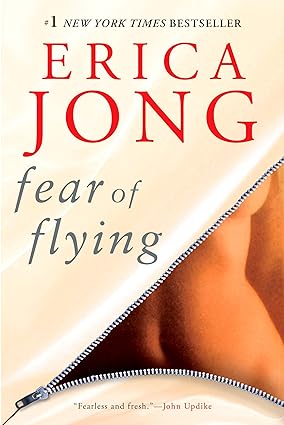
In this series Christian Pan re-discovers classic erotic literature from a current perspective.
Re-Reading Erotic Lit Classics: Delta of Venus
by Anais Nin. Reviewed By Christian Pan

The French-Cuban-American writer Anais Nin is one of the more complicated literary figures from the previous century, especially in relation to her contributions to the history of modern erotic fiction. In nearly all of the critical praise of her work as being “feminist” or writing “erotica from a female gaze”, there seems to be a collapsing between what is on the page and key episodes from her exotic biography, as if the two were one and the same. Perhaps this is partly due to the fact that a significant portion of her total literary output was as a diarist, publishing and revising the journals she began as a child and which she continued to write and rewrite throughout her life. Add to this Nin´s exceptionally bohemian lifestyle, living in Paris and New York with numerous lovers including writers Henry Miller and Gore Vidal and psychoanalyst Otto Rank. She also was a bigamist (she married her second husband before divorcing her first), was rumored to be bisexual, and had an incestuous affair with her estranged father when she was 30 years old. Traces of all of these and more can be found in her writings.
Perhaps no volume captures the complexity and contradictions of her persona, and how these appear in her fiction, than Delta of Venus. Written in the 1940s but only published posthumously in 1977 after her death, these fifteen stories were commissioned by the then-anonymous “collector”--later revealed to be wealthy oil tycoon Roy M. Johnson of Oklahoma–to be erotic, with as much explicit sex as possible. Influenced by the surrealist movement in visual art as well as novelists like DH Lawrence and Marcel Proust, Nin wanted her bespoke pornography to be more literary, and readers today can sense such aspirations within her prose. In her journals, Nin describes some of her process in approaching the creation of these tales. In addition to her own artistic imagination, Nin listened to stories shared by her friends, read the Kama Sutra, and more. And while the prose of Delta of Venus is frequently sensual, overall these stories tend to haunt more than they arouse.
However, calling Delta of Venus “feminist” or even “erotic” can be difficult. True, the collector´s purported commission rate of $1 per page (adjusted for inflation, that would be about $21.50 per page today) is pretty excellent for Nin from a financial standpoint, though it´s far from liberatory. Further, calling Delta of Venus as being “written from the female gaze” implies agency, as if Nin had just decided to embark on a new literary project, to upend the traditional conventions permeating erotic literature up to that point. The truth is that Nin was broke, and was being paid to write short erotic stories for a specific and singular (male) readership of one.
Amongst her sources of inspiration, Nin cites Psychopathia Sexualis (1868), Dr. Krafft-Ebing´s landmark text in European psychiatry during the early part of the 20th century, as a significant influence on her approach to the stories contained in this volume. She seems to approach the description of sex with an almost clinical level detachment, but also seems intrigued by sexual expressions which are taboo and transgressive. Nin sets her stories in Greenwich Village or exotic locales across Europe, and populates Delta of Venus with bohemian artists and their models, erotic dancers and wealthy barons, and more. Like Krafft-Ebing, Nin explores a number of fetishes or “paraphilias” here, but within fictional instead of medical frameworks; the artist is more engaged with depicting some of the darker sides of human sexuality than explaining them. Delta of Venus includes voyeurism and exhibitionism, the fetishization of chastity belts and cock rings, explorations of hermaphroditism and transvestism, and more. Homosexual and bisexual characters also appear here, but Nin portrays them in even darker hues. While often called “erotic,” contemporary readers may be baffled to discover Nin seeming not to care whether these tales turn you on or not. If Nin´s characters enjoy anything like a happy ending in Delta of Venus, it is short-lived: remember that her source material by the 19th century German psychiatrist is about mental illness.
Finally, it must also be noted that Delta of Venus is filled with stories depicting non-consensual sex and other forms of sexual violence. Throughout these stories, men frequently rape women, and sometimes, they assault young girls and young boys, as well. One story features a group of boys taking turns raping a young boy in their group who “looked like a woman”; in another story, an adult man commits incest with his teenage daughters and son. Described by Nin with a rich prose style and simultaneously not commenting
on its morality, these stories can be disarming at the very least, and may prove confusing if one is expecting “erotica” (especially “feminist erotica” or “erotica for women”, as Nin´s writings in general and this volume of short stories in particular tend to be described). Like many of her contemporaries of the time, Nin refuses to comment on these characters or on what they do; she depicts, but whether she advocates such acts or such behavior is unlikely. Perhaps this is what makes Delta of Venus a charged book politically, and maybe why this work could be seen as “feminist” on some level. But while Nin´s writing here is frequently sensual, and while every story contains multiple descriptions of various people having all sorts of sex, calling these stories “erotic” is misleading.

Re-Reading Erotic Lit Classics: Venus in Furs by Leopold Von Sacher-Masoch. Reviewed By Christian Pan

The word “masochism” originated in the late 19th century, coined by German neurologist Richard von Krafft-Ebing to describe a psychosexual disorder wherein an individual derives pleasure and sexual gratification from pain or humiliation. His inspiration came from the surname of Austrian nobleman and writer Leopold von Sacher-Masoch, best known for his novella Venus in Furs.
Blending philosophy with erotica, Sacher-Masoch´s book explores a complex psychology of desire, one where arousal and pleasure are almost indistinguishable from punishment, slavery, and loss of control. Framed as a story within a story, Venus in Furs opens with an unnamed narrator experiencing a confusing dream of the goddess of love. Upon awakening, he seeks out his friend and fellow nobleman Severin to discuss it, perhaps to uncover its symbolic meanings. The main narrative of the book thus begins, as Severin shares the history of an unusual painting he possesses: in it lies Wanda, a noblewoman who lies naked on an ottoman save for a fur coat and a whip in her hand, with Severin kneeling at her feet in complete devotion.
Like our unnamed narrator (and, presumably, the author), Severin feels constrained by the etiquettes and rules of 19th century Vienna, longing for a romanticized pagan past versus the strict Christian edicts of his present. In particular, he feels that the sexes are inherently imbalanced, and that men and women each are using different forms of power over the other, to fulfill their innermost needs. When Severin meets Wanda, he finds a kindred spirit through the sharing of these dialogues, inspiring a profound level of love and passion within him: so much so that Severin frequently describes his feelings for her as being a form of madness.
The two embark on creating their own unique relationship, one which fulfills and eventually surpasses their unbound desires and impulses. The central bond in Venus in Furs is explicitly sadomasochistic, even though such words would not be invented for another twenty years or so. Severin's adoration for Wanda grows with every rejection, with each humiliating slight, until finally he needs regular physical as well as psychological pain from her. And she, while initially skeptical about assuming this exceptionally cruel role, finds herself reaching for the whip with relish as their affair moves forward. Their affair escalates to them relocating to Italy for a time, where Severin must attend to her as a slave. Wanda completely removes his agency and even his identity (she calls him Gregor), and yet with every loss of agency, every violent lash of her whip, his love for her remains as unwavering as a pagan in the temple of Aphrodite.
Sacher-Masoch's prose may be challenging for some contemporary readers, due to its time of creation as well as it being in translation. And yet, there is an unmistakable power in reading this tale unfold with an almost frenetic urgency towards its conclusion. Within all of the pain and violence, a significant portion of which is non-consensual, Severin retains an almost utopian vision of human relations. For him, the way to freedom is through bondage, and the path to supreme pleasure is through pain. Even if erotica with such a heavy dose of sadomasochism is not your kink, Venus In Furs remains an important and fascinating piece of literature, a provocative invitation to examine the complicated nature of our own sexual desires, needs, and relationships to power.

Re-Reading Erotic Lit Classics: Fear of Flying by Erica Jong. Reviewed By Christian Pan

What is freedom? Not just in terms of determining what sorts of intimate and sexual relationships one wishes to enjoy, but how can we meaningfully articulate a vision for living a thriving, full, contented life, in all of its complexity and with all of our foibles? How does one balance personal pursuits with spending time with one's lover? How can we successfully negotiate the time and energy necessary to nurture a marriage while simultaneously building a career (particularly if one is an artist)? How do the answers to these timeless and universal questions change when asked by a woman?
Upon its release in 1973, Erica Jong´s debut novel Fear of Flying garnered praise from respected literary figures John Updike and Henry Miller as well as became a popular bestseller in the culture. Many readers identified with the book´s semi-autobiographical heroine, a 29-year-old woman possessing intellect, wit, and an indefatigable passion to understand the nature of her desires. Isadora Wing is married, a Jewish New Yorker, a writer–but which of these is the most important? How do women balance them all together, and how can one wrest satisfaction from both one´s career and one´s relationships?
The book begins in Vienna. Isadora is attending a conference on psychoanalysis with her husband Bennet, ostensibly to write an article for a media outlet in New York. The choice of setting combined with her spouse´s profession is intentional by Jong, as Isadora´s narration will jump back and forth through time, and some chapters will be so confessional that they will almost feel like we are her therapist, listening to her on the couch. Shortly after her arrival to the event, Isadora meets Adrian, a British analyst who is the opposite in temperament to her husband: where Bennet is meek or submissive, this new man is confident, direct in articulating what he wants, an existentialist who invites Isadora to run away with him for a temporary affair. She joins him in the hopes of having a highly-charged sexual adventure, an act of rebellion which will shock her into realizing what is most important to her, what role her husband plays in her life, and more. But instead, Isadora finds that she and Adrian are simply driving around France and Germany, and that their lovemaking is infrequent or brief, if at all (Adrian is frequently impotent). When the Brit announces that he is going to return to his wife and children in England, Isadora storms off to a ramshackle room in a fleabag hotel in Paris, where she finally begins to fall in love with the one person she has been seeking all along: herself.
Fear of Flying originated the term the “zipless fuck,” and a significant portion of Jong´s book explores Isadora´s craving for anonymous, no strings attached sex with a man. But the book understands that sex is never without context, and that Isadora is really searching for a different level of experience, and is seeking a greater level of connection and personal understanding. In both temperament and subject matter, readers of Fear of Flying will quickly see how Jong blazed the trail for a number of subsequent books and writers that have followed in the generations that followed, from Candace Bushnell´s “Sex and the City” column and Helen Fielding's Bridget Jones Diary, to Phoebe Waller-Bridge´s Fleabag.
Christian Pan is a writer based in New York City who has published six novellas and nearly one hundred short stories focused on the erotic imagination since 2021. He also hosts the monthly Pulse Session for the podcast All the Filthy Details, and under another name works in the entertainment business.

The Crush Letter
The Crush Letter is a weekly newsletter from Dish Stanley curating articles & intelligence on everything love & connection - friendship, romance, self-love, sex. If you’d like to take a look at some of our best stories go to Read Us. Want the Dish?
If you love me as much as I love you (and I really do love you!), then please help me grow by forwarding this {love} Letter to a friend! And I'd love to have you join us on instagram, facebook & twitter.

